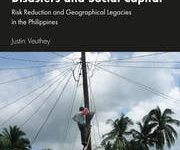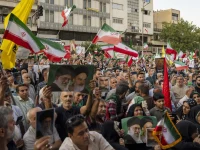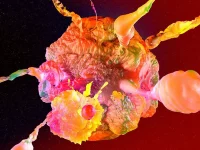UN. Human Rights Council. Sept.14 – Oct.2, 2015
SPEACH. Oral Update by Zeid Ra’ad Al Hussein United Nations High Commissioner for Human Rights at the Human Rights Council 30th Session.
Mr President, Excellencies,
You have just had the benefit of a deep and reflective panel discussion with the Special Rapporteur on the human rights situation in the Democratic People’s Republic of Korea and other distinguished experts, together with representatives from civil society. Their remarks have once again brought home the scale, magnitude and systemic nature of the human rights violations in the Democratic People’s Republic of Korea. Their impact has been massive, both on the people of the DPRK and on foreign nationals who have been the victims of abduction, disappearances and family separation.
This has been a year of intensified action by OHCHR, particularly in follow up to the landmark Commission of Inquiry on the DPRK. I am pleased to provide to the Council this oral update on the role and achievements of the Office in this regard, including on the establishment of a field-based structure, as requested in Resolution 28/18.
In fulfilment of the mandate given by the Human Rights Council in Resolution 25/25, OHCHR’s field-based structure in Seoul is now operational. Its core objectives are to improve the human rights situation in the DPRK, and to advance accountability. Our staff in Seoul have already begun working to strengthen monitoring, advocacy and technical assistance, in partnership with civil society, Governments, UN agencies and other actors. The issue of abductions and enforced disappearances will remain a critical focus of their work.
I travelled to Seoul in June for the office’s formal opening, and I was struck by the multiplicity and openness of our partners, including civil society groups and a range of academic institutions, who have been working to improve the human rights situation in the DPRK for many years. The Seoul office will become a platform for information, interaction and coordination with all these actors, working in accordance with the mandate given by Council resolution 25/25, in addition to subsequent resolutions by the Council and the General Assembly.
During my visit, I met with a number of men and women who had left the DPRK, some as recently as this year, who told me of the extraordinary trials of daily life there. I was moved by their description of violations of their most fundamental rights – severe discrimination based on the songbun system; crippling restrictions on freedom of expression; limitations on marriage; pervasive corruption; and the persistent fear that entire families could at any time be detained, without due process, for any real or perceived infraction.
I also heard the deep hopes held by many among the Korean people – North and South – that there can one day be a peaceful unification of the Korean Peninsula. This desire is shared by many officials on both sides of the border. Human rights principles can help both Governments to strengthen their dialogue towards this goal with important confidence-building measures.
Recent intra-Korean talks, and the agreement reached in late August, have raised hope of progress on some issues, in particular family reunions. Tens of thousands of people, most of them elderly, are separated from relatives on the other side of the border. Only a small fraction of separated families have been able to benefit from these meetings and for many, time is running out. Progress on the reunion of separated families will be a key indicator of political will. It is my sincere hope that both sides will build on this confidence-building measure by allowing family reunions and other people-to-people contacts to take place.
In the medium term, dialogue could also be advanced through effective strategies to strengthen the protection of human rights in both countries. Longer-term, it will also be necessary to deal with the past and ensure justice and redress for victims of human rights violations to bring healing on both sides.
The international community has a critical role to play in encouraging such progress.
This Council acknowledged the DPRK authorities’ engagement in the country’s second UPR process last year. For the first time, the DPRK accepted numerous recommendations on humanitarian assistance, women and children’s rights, health and education. Signals such as these – which demonstrate willingness to both engage with international human rights mechanisms and begin meaningful reforms – should, I believe, be acknowledged as constructive first steps.
OHCHR will continue to seek to engage the authorities of the DPRK and offer technical cooperation and assistance where we can make a meaningful and measurable difference – for instance regarding those UPR recommendations that have been accepted. I am at present in communication with the Government of the DPRK and hope to be able to communicate my messages directly with senior officials. OHCHR has also been talking with its partners in the broader UN system about ways follow up to UPR could be supported through UN programs in-country.
At the same time, the Commission of Inquiry’s finding that crimes of humanity have been, and continue to be, committed clearly invokes the international community’s responsibility to take action. Such action could include, among others possible referral to the International Criminal Court. Last December, the Assistant Secretary-General for Human Rights briefed the Security Council on my behalf on the human rights situation in the DPRK. I trust that the Security Council will continue to carefully monitor developments in the DPRK, to see whether engagement inspires real change, or should yield to further action. My view is that this may in itself act as a significant deterrent to further violations.
OHCHR’s field-based structure in Seoul will in the meantime continue to gather information regarding the human rights situation in the DPRK from many sources in the Korean Peninsula and further afield, including from persons who have left the DPRK. This can help us to identify entry points for engagement, as well as deepening the reporting and analysis that will one day serve to hold perpetrators of violations to account.
The Seoul office has begun interviewing persons who have left the DPRK to update and deepen the information gathered by the Special Rapporteur and Commission of Inquiry on various patterns of human rights violations. OHCHR is also broadening its network of contacts with civil society organizations, analysts and research institutions to gather information, not only in the Republic of Korea but the broader region.
Mr President,
Excellencies,
Ladies and Gentlemen,
The stakes are very high. Millions of people in the DPRK continue to endure intolerable violations of their fundamental rights, and this acute and long-lasting suffering cries out for justice and for relief. There are also strong links between oppressive practices in the DPRK and tension throughout the broader region. The outflow of persons from the country; the practice of international abductions and enforced disappearances, which has been discussed in the panel today; and the sustained military and nuclear focus of the Government all have significant impact on the enjoyment of rights in the broader region, as well as within the borders of the DPRK.
The Commission of Inquiry, successive Special Rapporteurs, and many dedicated civil society activists and academics have irrefutably exposed the full dimensions of the human rights situation in the DPRK. For the sake of the victims and their families, and to achieve real peace and sustained development throughout the Korean Peninsula and beyond, OHCHR is committed to working with the Government of the DPRK, all Member States and stakeholders to bring near-term improvements and accountability for the human rights situation in DPRK.
Thank you.
– See more at: http://www.ohchr.org/EN/NewsEvents/Pages/DisplayNews.aspx?NewsID=16473&LangID=E#sthash.koazm0kJ.dpuf










